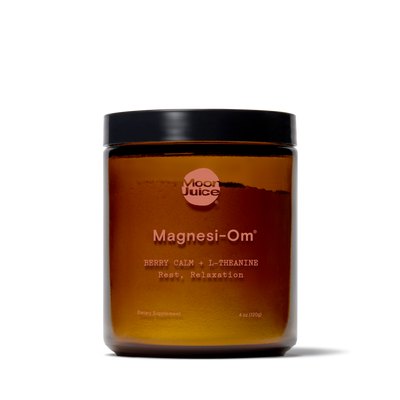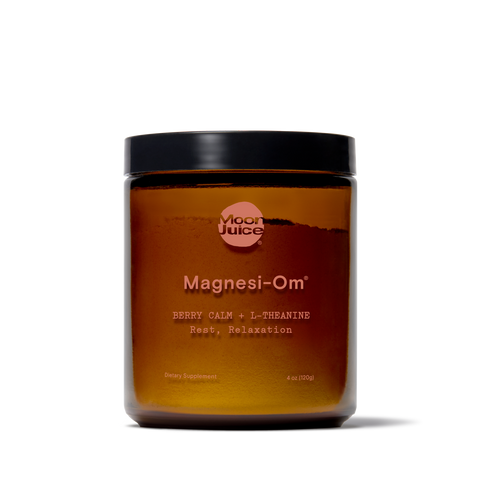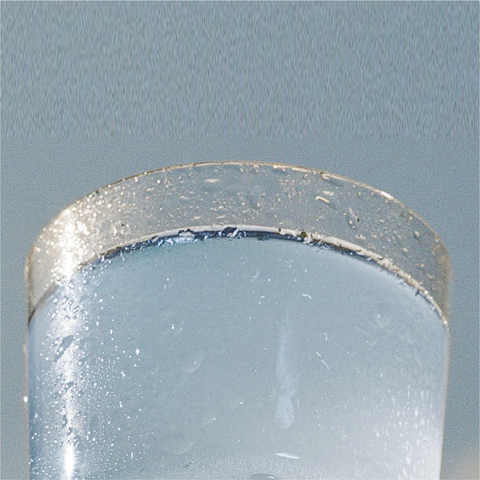Every cell in your body needs Magnesium, an essential mineral that’s crucial for over 300 metabolic reactions, including energy production and nerve function. But many of us don’t get enough Magnesium through our diets alone. Even though Magnesium can be found in a variety of foods like leafy greens and legumes, thanks to modern soil depletion, up to two thirds of us aren’t meeting our Magnesium needs.
If you’re considering different dietary Magnesium supplementation options, it’s easy to get confused by the different types that are available on the market. Magnesium Oxide and Magnesium Citrate are among the many, but how do you know if you should be taking Magnesium Oxide vs. Citrate?
Ahead, we’ll discuss these two popular forms of Magnesium supplements—what distinguishes them, their reported benefits, and whether they come with side effects. Read on to learn the difference between Magnesium Oxide and Magnesium Citrate.
What is Magnesium Oxide?
Magnesium Oxide is one of the most common forms you’ll find in dietary supplements. As the name indicates, it’s made by combining ions of Magnesium with oxygen. It’s often used for digestive issues and headaches. Magnesium Oxide can be a relatively inexpensive form, which is one of the reasons you’ll see brands using it. It commonly comes in tablet form and is widely available at grocery stores.
What is Magnesium Citrate?
Magnesium Citrate is one of the most popular types of Magnesium. It’s made by combining Magnesium salt with citric acid. This results in a form that’s about 16% elemental Magnesium. It’s typically taken to raise Magnesium levels in your body. Whether you’re looking to improve digestion or support your nervous system, there are many benefits of taking Magnesium Citrate on a regular basis.
Key Differences Between Magnesium Citrate vs. Magnesium Oxide
Not all Magnesium supplementation is created equal. If you’re deciding between Magnesium Oxide vs. Magnesium Citrate, there are a few important differences to note in terms of their makeup, usage, and how effectively they’re absorbed by your body.
Chemical Composition
Magnesium is often combined with other compounds to make it more bioavailable for your body to consume. There are more than 10 different forms of Magnesium available, each with different uses and features. For instance, you’ll find it in forms like Magnesium Oxide, Magnesium Citrate, Magnesium Glycinate, and Magnesium Chloride.
Magnesium Oxide is made by combining Magnesium and Oxygen, while Magnesium Citrate is made by combining Magnesium salt with citric acid.
Magnesium Absorption & Bioavailability
Magnesium absorption and bioavailability are crucial because they determine how much of the mineral your body can actually use. A number of studies have shown that Magnesium Citrate supplements are more efficient at raising Magnesium levels in the body than Magnesium Oxide supplements. In a 2001 comparative study examining the bioavailability of four commercially available Magnesium preparations, results indicated relatively poor absorption of Magnesium Oxide (fractional absorption 4%) and significantly higher absorption of Magnesium Citrate.1
Uses & Health Benefits
As a crucial mineral and vital electrolyte, Magnesium has a wide variety of important functions within your body. Adequate Magnesium intake and balanced Magnesium levels, therefore, have many benefits for your health. They contribute to energy production, protein synthesis, hydration, muscle and nerve function, improved exercise performance, and even the regulation of blood sugar and blood pressure levels.
One of the key benefits of Magnesium is its role in supporting bone health. It works synergistically with Calcium and Vitamin D to help you maintain strong bone structure. Additionally, Magnesium helps relax your muscles, which can reduce muscle cramps and spasms. It also plays a role in heart health, helping maintain a regular heartbeat and supporting vascular tone, which may help lower blood pressure.
Magnesium is also known for its calming effects on the nervous system, which can help reduce stress and promote better sleep. Many people take a Magnesium powder supplement for sleep or general relaxation.
Because Magnesium Citrate is known for its high bioavailability in your body, it’s a good choice if you’re looking to get an adequate intake of Magnesium in order to experience more of these health benefits. It’s also often used for its gentle laxative effects to relieve digestive blockages and get things moving because Magnesium makes you poop.
Magnesium Oxide is also used for laxative effects. Though it has been shown to be less bioavailable, Magnesium Oxide is widely found on many shelves due to its cheaper costs for manufacturers.
Side Effects
Getting too much dietary Magnesium from food doesn’t pose a health risk for healthy people because any excess gets eliminated when you pee. But taking too much of a Magnesium supplement could have side effects, including nausea, abdominal cramping, and diarrhea. Taken in large doses, Magnesium Citrate could cause electrolyte imbalances or diarrhea due to its laxative effects. However, large doses of Magnesium Oxide are more likely to cause diarrhea and stomach discomfort due to its lower bioavailability, leading to unabsorbed Magnesium in the intestines. Unlike Citrate, Magnesium Oxide is among the 4 most common types of Magnesium to cause diarrhea.2 Always follow recommended dosages and consult your healthcare adviser to minimize side effects.

Choosing Between Magnesium Oxide & Citrate
So, what’s the best Magnesium supplement? Well, it depends. Next time you're buying dietary supplements, you might want to think about the different Magnesium supplements available to you before grabbing the first one you see off the shelf.
When to Choose Magnesium Oxide
When considering Magnesium Oxide, you’ll want to keep in mind its slow rate of absorption as well as its digestive effects. Thanks to its ability to draw water into the intestines, promoting regularity, this form is often used as a laxative. Magnesium Oxide can also be used as an antacid to relieve heartburn and indigestion. But its low bioavailability can limit its efficacy for those who have low Magnesium levels, since it might not be absorbed well. If you’re looking to get a full range of Magnesium benefits or up your overall rate of Magnesium in the blood, Magnesium Oxide won’t be your best option.
When to Choose Magnesium Citrate
Magnesium Citrate, on the other hand, is a more bioavailable form of Mag, meaning it’s absorbed more efficiently by the body. This makes it a good choice for people with Magnesium deficiency or those who are looking for more immediate relief from symptoms like muscle cramps.
Magnesium Citrate is also used to support heart health, nerve function, muscle relaxation, and other benefits of balanced Magnesium in the body. Thanks to its ability to improve regularity as an osmotic laxative, Magnesium Citrate is also a good option if you're looking for a dietary Magnesium supplement to help clear you out before a medical procedure.
Overall, this one’s a great choice if you’re looking for a well-absorbed form of Magnesium that has a variety of benefits.
Is Magnesium Oxide or Citrate Better?
Generally speaking, Magnesium Citrate is going to win out over Magnesium Oxide in terms of the amount of Magnesium that actually gets absorbed into your blood—and all the benefits that adequate Magnesium intake comes with. Remember that Magnesium is responsible for over 300 enzymatic functions in the body—from muscular and cardiovascular to digestive. Since both forms support regularity, Magnesium Citrate may have more to offer you overall in a Magnesium powder.
Takeaways
Magnesium is an essential mineral and electrolyte with a wide range of benefits, and proper levels can help you achieve a foundation for overall health. If you suspect you’re one of the many individuals who aren’t getting enough Magnesium through diet alone, supplementation can be a helpful way to ensure adequate intake.
Magnesi-Om® is a Magnesium powder supplement with three carefully chosen and bioavailable forms of Magnesium plus L-Theanine to help restore cellular balance for relaxation, sleep, brain health, and regularity. Magnesium Citrate supports your bowel movements, while chelated Magnesium Gluconate and Acetyl Taurinate support muscle relaxation and cognitive function.
Sources
- Firoz, M., & Graber, M. (2001). Bioavailability of US commercial magnesium preparations. Magnesium research, 14(4), 257–262. https://pubmed.ncbi.nlm.nih.gov/11794633/
- Magnesium: Fact Sheet for Health Professionals. https://ods.od.nih.gov/factsheets/Magnesium-HealthProfessional/














